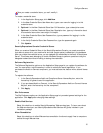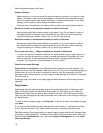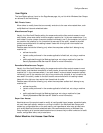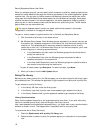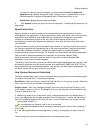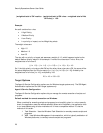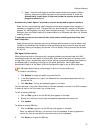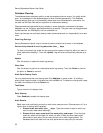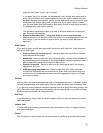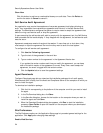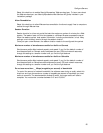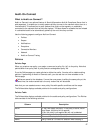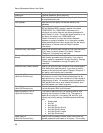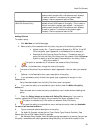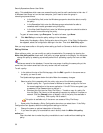Configure Servers
23
target for every week, month, year, or overall.
If you select Yearly, for example, the database will retain the last audit performed on
every policy file and on every target audited for every year you've audited using this
database. Because cleanups occur nightly, the last audit saved during the current year
could potentially change nightly until the year ends. If you select Overall, however,
only the most recent audit performed on each policy file and on each target remains in
the database after each nightly cleanup.
The application recognizes the span of a week to be when weeks are configured to
start and end in the database.
• Discard audits older than __ days that failed to run or had errors only -
Cleanup occurs only to data from audits that failed to run or audits where all rules had
Error ratings. Type the number of days for which you want to retain data before
deleting it.
Audit Types
If you want to clean up audit data generated from certain audit types only, check the boxes
next to the audit types.
• Audit-on-Connect and self service - Cleans up data from only Audit-on-Connect
audits and self-service audits.
• Scheduled - Cleans up data from only scheduled audits, including audits scheduled in
any console application connected to the same database the server application uses. It
also includes audits performed through the Web service.
• Console interactive - Cleans up data from only audits performed in the console
application's Audit tab.
• COM object and command line - Cleans up data from only audits performed
through the COM object and the command line. Audit results imported through the
command line are considered command-line audits regardless of what kind of audit
produced the results.
Policies
All policy files (.sif) used to generate audit data in the database are listed. If you want to clean
up audit data generated from certain policy files only, check the boxes next to the policy files.
If you leave all boxes unchecked, scheduled cleanups include all policy files listed plus any new
policy files used in audits performed after configuring this cleanup task. If you check all boxes,
scheduled cleanups include just those policy files.
Add Task
If you're creating a cleanup task, this button appears. Click it to save the options you set as a
new cleanup task.
Update Task
If you're modifying an existing cleanup task, this button appears. Click it to update the task
with the new settings.
Cancel
Click this button to cancel creating a new cleanup task or modifying an existing cleanup task.



